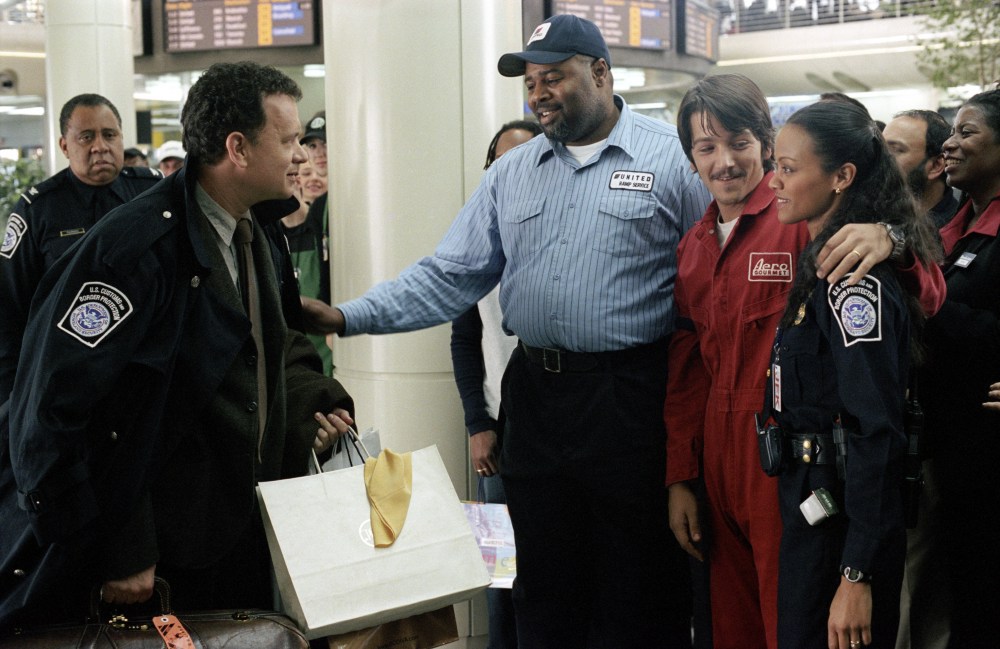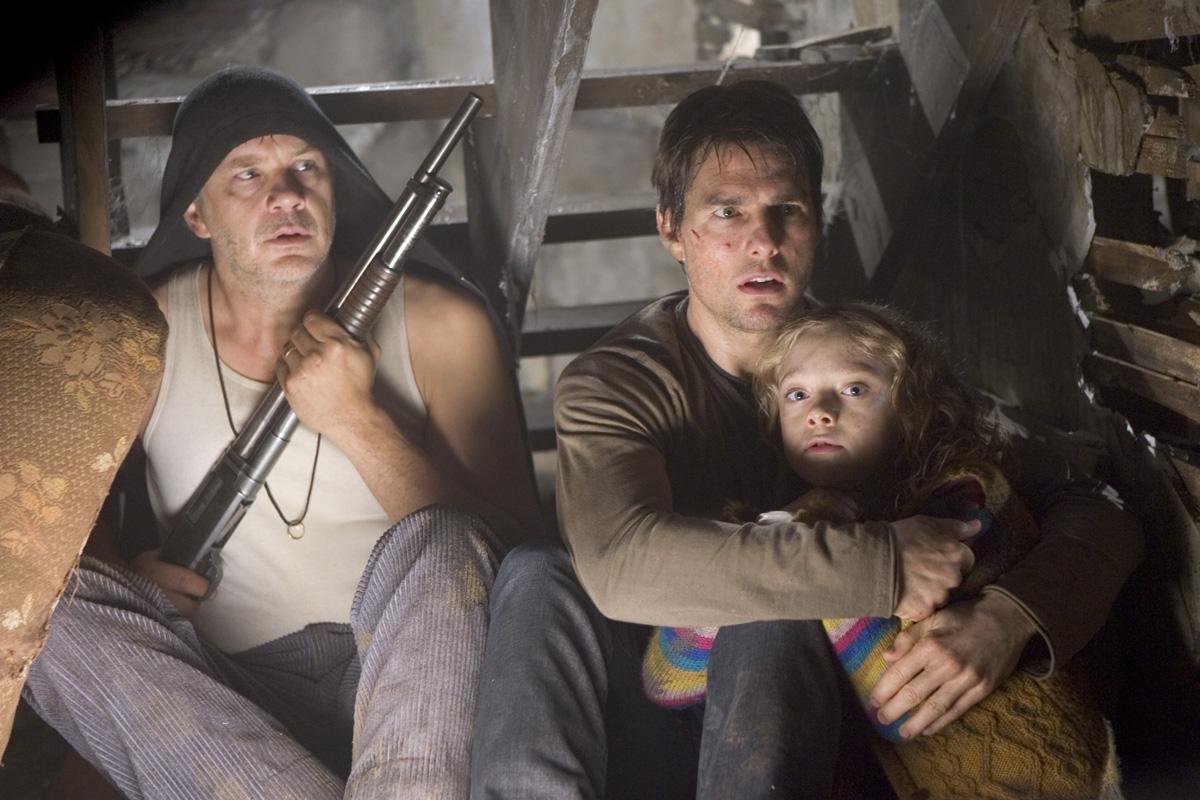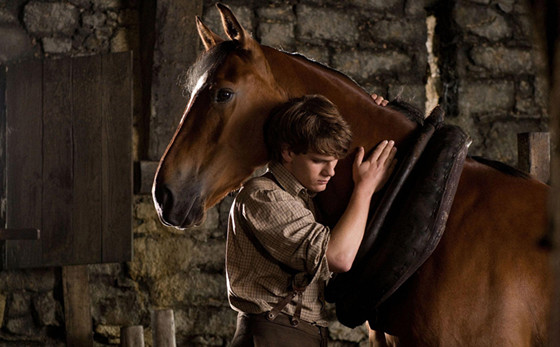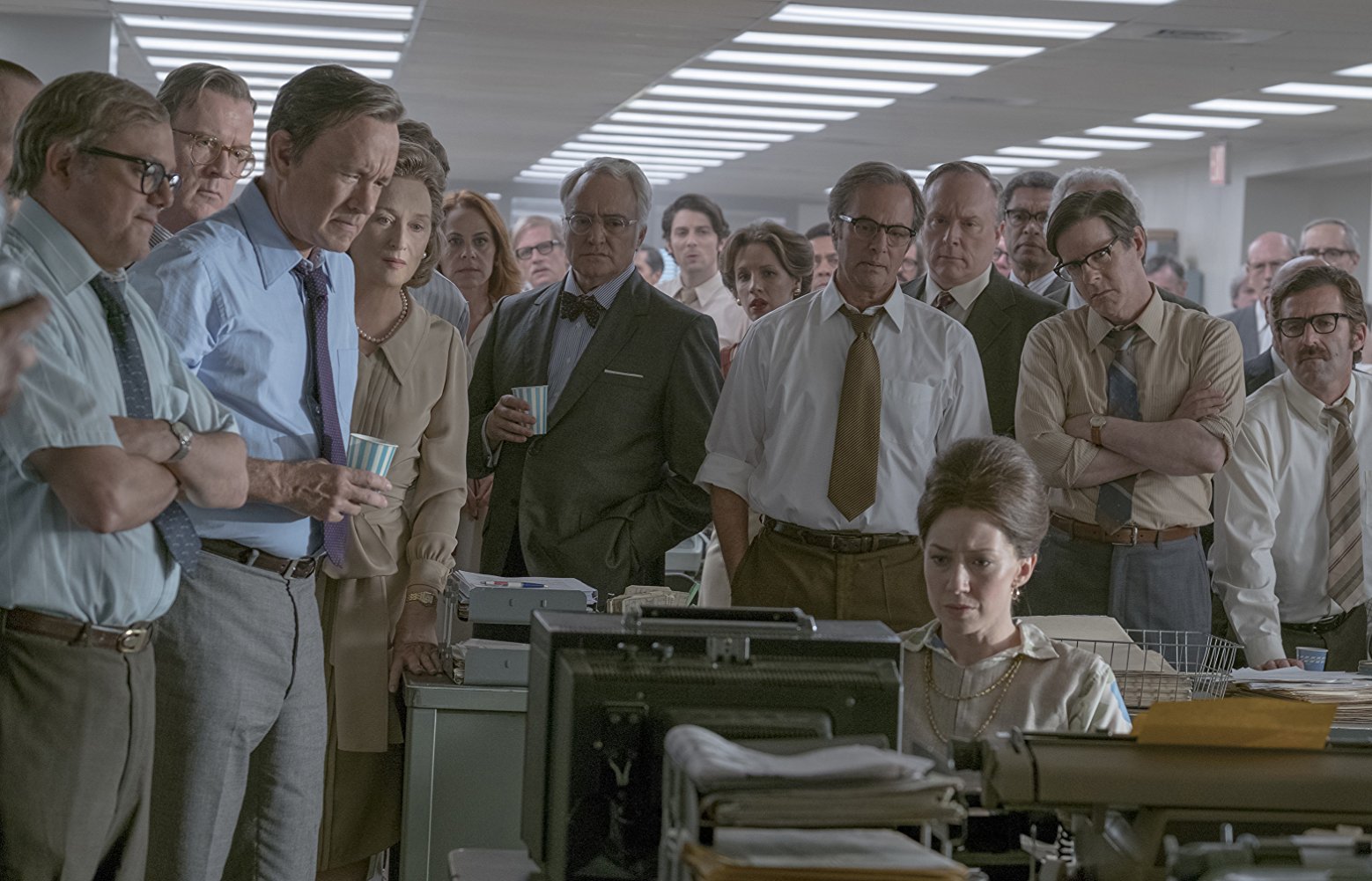6. The Terminal (2004)

The Terminal was a curious detour in Steven Spielberg’s career–during a time when he was dipping his toes across various genres and styles. Reuniting with Tom Hanks, and continuing to explore post-9/11 sentiments in America, in this instance shifting into the realm of a Chaplinesque comedy, the 2004 film is commonly disregarded in the Spielberg canon. On a more flexible look, The Terminal, flaws withstanding, is an endearing tale unafraid of big emotions, and it recalls a sense of classicalism in a 21st-century backdrop.
Due to an ongoing civil war in his home country, The Terminal observes Eastern European tourist Viktor Navorski (Hanks) stuck in John F. Kennedy Airport after the U.S. government refuses him to return home. The post-9/11 implications surrounding xenophobia and the suffocating caution enacted by Homeland Security over the threat of terrorism are present. Spielberg also tackled the perilous state of the country through science-fiction settings in Minority Report and War of the Worlds. Where these films are bleak and disturbed, The Terminal blends screwball comedy with soapy romance.
The pastiche quality of the film is admirable, even as Hanks’ goofy but lovable performance sticks out. Being emotionally manipulative is an overrated criticism in film, as any piece of art is designed to make the viewer think/feel something, but Spielberg often plays his hand too far into broad characterization. This is evident in the naive and simple-minded foreigner, the fateful romantic damsel in Catherine Zeta-Jones, and the tyrannical government overlord in Stanley Tucci. Unlike most Spielberg films, the story lacks a steady sense of momentum. However, The Terminal remains an overlooked film that demonstrates Spielberg’s wonder and charisma behind the camera.
7. War of the Worlds (2005)

Never did Steven Spielberg view the world in such despair as he did in 2005 with the dual release of Munich and War of the Worlds. With the latter of the two, he evoked bleakness into a summer blockbuster. Continuing to grasp the implications of the end of the world combined with his reckoning with his absentee fatherhood, War of the Worlds was mysteriously received with timid praise–written off due to overdone Spielberg tendencies.
In a modern-day adaptation of the H.G. Wells novel of the same name, the film tracks an alien invasion threatening the future of humanity from the perspective of a divorced father, Ray Ferrier (Tom Cruise), protecting his children from extraterrestrial combatants. The slick action directing and staging that Spielberg has mastered is on full display, accompanied by imaginative special effects that have not aged a year. The dramatic device of Ray rebuilding a relationship with his family as the world crumbles into an apocalypse. Cruise’s performance is the kind audiences long for him to take a shot at again, as his flawed paternal oversight makes him a captivating figure to root for in his redemption.
The stakes of War of the Worlds are rigidly structured around the family’s survival, but through the personal turmoil of the Ferriers, the weight of the world’s destruction is equally felt. Spielberg understands that the decay of the idealistic American suburbia in the wake of 9/11 was already underway. Even without cognizance of the cataclysmic event at the heart of War of the Worlds, the film is clouded with sadness. Beneath the “glamor” of big-budgeted spectacle filled with set pieces and special effects is Spielberg’s panic surrounding the degradation of innocence.
8. Munich (2005)

On the flip side of Steven Spielberg’s releases in 2005 about post-9/11 panic, Munich was a major awards player and showcased an unprecedented side of the director. Spielberg’s bid in adapting a true story about a historical event played as shameless Oscar bait, but the film is far more punishing and vulnerable than the run-of-the-mill docu-drama. Just like War of the Worlds, Munich represents Spielberg’s personal angst.
Based on the real events that occurred following the Black September massacre of Israeli athletes at the 1972 Olympics, Munich follows five men who are chosen to eliminate the people responsible for the atrocity. Beyond just the parameters of the plot, this is Spielberg at his darkest. Each sequence of violence is painted with the backdrop of a hellish foray. Because Spielberg is so gifted at blocking and staging, the assassinations resemble a scene out of an action movie. Rather than diminishing the consequential circumstances of the acts of vengeance, it creates a worthwhile shock value–especially considering that this was a major awards contender.
Despite the seemingly cinematic assassination sequences, the conclusion of Munich undercuts any disposition of a clean Hollywood moral. Avner (Eric Bana), whose haunted soul longs for vengeance and repentance for what occurred in Munich, confronts the harsh reality that acts of retribution are ultimately futile, as forces of evil have a farm system that can seamlessly replace past perpetrators. Spielberg and screenwriter Tony Kushner are uninterested in a rudimentary retelling of a historical event’s Wikipedia page but instead, dive into the collective psychology of nationalism and faith. In the past, the director explored characters attempting to find heaven while living in the depths of hell, and as a result, he viewed the world benevolently. In Munich, it’s evident that Spielberg sees the world in a more dire place than where the story began.
9. War Horse (2011)

The influence that the great John Ford has left behind on modern filmmaking is immeasurably. More than anyone, Steven Spielberg has been chasing after Ford’s vision. In 2011, the director finally dove head-first and a pure homage to Ford’s filmography. War Horse, while not perfect by any stretch, is an insightful demonstration of integrating classical influences into a populist mold.
War Horse follows a young man in Great Britain, Albert (Jeremy Irvine), who enlists in World War I after his beloved horse is sold to the cavalry. The character arc surrounding Albert’s passionate companionship to his horse plays like Spielberg karaoke in spurts. The director’s whole-hearted emotional spiritualism in most films is genuine, but here, his attempt at making the horse the MacGuffin and the center of Albert’s characterization is forced. This issue is slightly mitigated thanks to the gorgeous photography that mimics Ford’s picturesque visual language of the American frontier.
The pastiche aesthetic of the film helps carry the film’s momentum when its jagged structure derails the flow. Like many of his recent outputs, War Horse juggles the innocent wonder of adventure and the horrors of a fractured and chaotic world. The perspective of World War I through the eyes of a hopeful farmer boy is a classic Spielberg device that complements the Fordian tale of the American West. Even as an austere film seemingly designed to win Academy Awards, War Horse features all of the essential assets to be packaged in the Spielberg canon.
10. The Post (2017)

Steven Spielberg is tapped into the current political climate, even if his filmography does not suggest so. Sensing the immediacy of a story about the importance of journalism in the wake of the emergence of the Donald Trump presidency, Spielberg banded together a star-studded cast to tackle a historical event that shadowed current events in The Post.
Set against the backdrop of the Vietnam War, The Post reports on The Washington Post’s investigation of the leaked Pentagon Papers and the White House’s cover-up of the futility of the war led by publisher Katharine Graham (Meryl Streep) and editor Ben Bradlee (Tom Hanks). The glaring flaw of the film is the self-righteousness on the creative team’s part regarding the sincerity of journalism. The references to the current political climate are glaringly forced and awkward. The Post is understandably tiresome for many, as its boastfulness about obvious sentiments is a dramatic crutch for Spielberg.
Having said that, the film has an exceptional pace and energy for a rudimentary docudrama. There are few things in films more inherently satisfying than watching professionals be proficient at their jobs, and The Post is practically a feature-length montage of this phenomenon. The zippy exhibition of the newsroom floor conveys the commotion of news writing and reporting. All the actors relish the period setting and heightened circumstances of the story. Spielberg’s equal enthusiasm and distaste for this time and place is palpable. It certainly doesn’t reinvent the wheel, but The Post is a worthwhile Hollywoodized depiction of a tumultuous period in history that valiantly portrays a last breed of maverick journalists along the way.